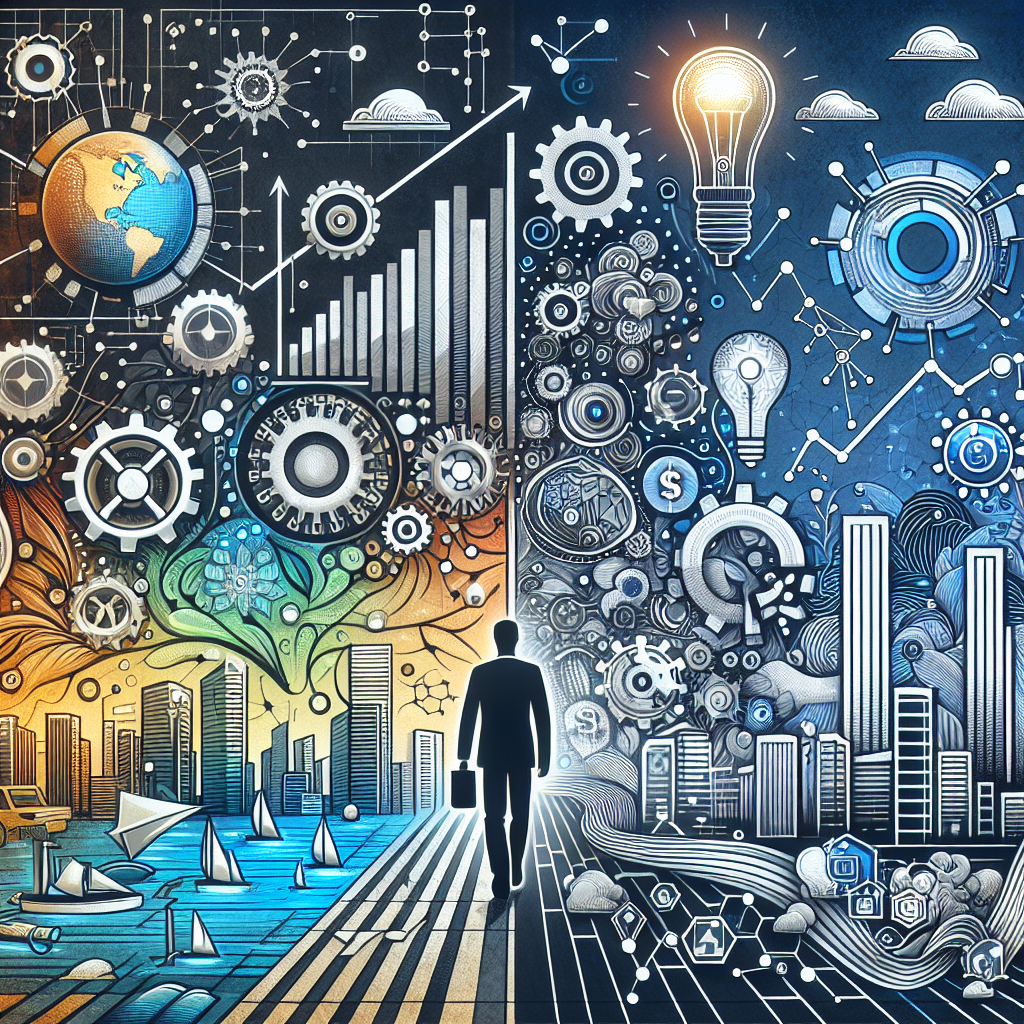Artificial Intelligence (AI) has been a hot topic in recent years, with a growing number of businesses and industries looking to leverage its capabilities to drive economic development. From boosting productivity to fostering innovation, AI has the potential to revolutionize the way we work and do business.
One of the key ways AI can contribute to economic development is by increasing productivity. By automating routine tasks and processes, AI can help businesses streamline operations and reduce costs. This can free up employees to focus on more strategic tasks that require human creativity and critical thinking, ultimately leading to higher productivity levels.
AI can also help businesses make better decisions by analyzing vast amounts of data in real-time. This can lead to more accurate forecasting and improved risk management, helping businesses stay ahead of the competition. In addition, AI can help businesses identify new opportunities for growth and expansion, by analyzing market trends and consumer behavior.
Furthermore, AI can drive innovation by enabling businesses to develop new products and services that meet the changing needs of consumers. For example, AI-powered chatbots can provide personalized customer service, while AI algorithms can help businesses optimize their marketing strategies. In addition, AI can be used to develop new technologies and solutions that can address pressing societal challenges, such as climate change and healthcare.
Overall, AI has the potential to drive economic development by boosting productivity, fostering innovation, and creating new opportunities for growth. However, there are also challenges that need to be addressed, such as ethical considerations and concerns about job displacement. It is important for businesses and policymakers to work together to ensure that AI is used responsibly and ethically, and that measures are put in place to support workers who may be affected by automation.
FAQs:
Q: What are some examples of AI applications that can boost productivity in businesses?
A: Some examples of AI applications that can boost productivity in businesses include robotic process automation (RPA), predictive analytics, and natural language processing (NLP). RPA can automate routine tasks such as data entry and processing, while predictive analytics can help businesses make better decisions by analyzing data and forecasting trends. NLP can help businesses automate customer service interactions and improve communication with customers.
Q: How can AI foster innovation in businesses?
A: AI can foster innovation in businesses by enabling them to develop new products and services that meet the changing needs of consumers. For example, AI-powered chatbots can provide personalized customer service, while AI algorithms can help businesses optimize their marketing strategies. In addition, AI can be used to develop new technologies and solutions that can address pressing societal challenges, such as climate change and healthcare.
Q: What are some of the challenges associated with AI and economic development?
A: Some of the challenges associated with AI and economic development include ethical considerations, concerns about job displacement, and the need for regulatory frameworks to govern the use of AI. It is important for businesses and policymakers to work together to ensure that AI is used responsibly and ethically, and that measures are put in place to support workers who may be affected by automation.
In conclusion, AI has the potential to drive economic development by boosting productivity, fostering innovation, and creating new opportunities for growth. While there are challenges that need to be addressed, such as ethical considerations and concerns about job displacement, the benefits of AI are clear. Businesses that embrace AI and invest in its capabilities stand to gain a competitive edge in the evolving digital economy. It is important for businesses and policymakers to work together to harness the power of AI for the benefit of society as a whole.

